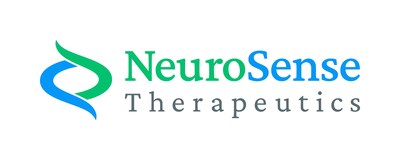NeuroSense Therapeutics & Massachusetts General Hospital's NeuroEpigenetics Lab to Collaborate on Elucidating Neurotherapeutic Effects of PrimeC in ALS
NeuroSense Therapeutics (NASDAQ: NRSN) has announced a collaboration with Dr. Ghazaleh Sadri-Vakili's NeuroEpigenetics Lab at Massachusetts General Hospital to study PrimeC, its lead ALS drug candidate. The research will utilize an in vitro model derived from post-mortem ALS brain tissue to examine PrimeC's neurotherapeutic effects, specifically targeting pathways related to TDP-43 accumulation and mitochondrial dysfunction. Preliminary findings will be presented by Dr. Zimri at the AD/PD 2023 Conference in Gothenburg, Sweden, scheduled for March 28 - April 1, 2023. PrimeC has previously shown promise in a Phase 2a clinical trial.
- Collaboration with Massachusetts General Hospital enhances research capabilities on PrimeC's effects in ALS.
- PrimeC demonstrated safety and efficacy in Phase 2a clinical trial, achieving endpoints related to functional and respiratory deterioration.
- Presenting preliminary results at a significant conference may attract investor interest.
- Dependence on the collaboration's success to elucidate PrimeC's efficacy relative to ALS study endpoints.
- Potential delays in obtaining preliminary results from the collaboration could impact investor confidence.
- In vitro studies to test the effects of PrimeC on key pathways involved in ALS including TDP-43 accumulation, autophagy defects, mitochondrial dysfunction, and oxidative stress
- Preliminary results from this collaboration will be presented by Dr. Zimri at the upcoming AD/PD 2023 Advances in
Science & Therapy Conference - PrimeC is currently being evaluated in PARADIGM, a Phase 2b ALS trial

Dr. Sadri-Vakili, Associate Professor at
The objective of the collaborative studies is to expand the understanding of PrimeC's mechanism of action in attenuating ALS-related pathology, specifically TDP-43 accumulation, autophagy defects, mitochondrial dysfunction, and oxidative stress. To address this, ALS- or control-SNs derived from post-mortem brains will be used to treat SH-SY5Y cells to induce reactive oxygen species and mitochondrial dysfunction, as previously shown by the Sadri-Vakili lab, in the presence or absence of PrimeC. Importantly, the studies will compare the potential therapeutic effect of PrimeC combination therapy relative to each one of its FDA-approved compounds, ciprofloxacin and celecoxib, separately, to further demonstrate the beneficial synergistic effect of PrimeC as a combination therapy.
"We are excited to join NeuroSense in its mission to advance PrimeC for people living with ALS," commented Dr. Sadri-Vakili. "Our laboratory prides itself on partnering with industry collaborators to assess the neuroprotective efficacy of new treatments with the hopes of identifying novel therapies for ALS. Our in vitro model may serve as an effective tool to increase our understanding of PrimeC's neurotherapeutic mechanism of action."
NeuroSense's Vice President of R&D, Dr.
Preliminary results from this collaboration will be presented by Dr. Zimri in her talk at the upcoming AD/PD 2023 Advances in
About PrimeC
PrimeC, NeuroSense's lead drug candidate, is a novel extended-release oral formulation composed of a unique fixed-dose combination of two FDA-approved drugs: ciprofloxacin and celecoxib. PrimeC is designed to synergistically target several key mechanisms of amyotrophic lateral sclerosis (ALS) that contribute to motor neuron degeneration, inflammation, iron accumulation and impaired RNA regulation to potentially inhibit the progression of ALS. NeuroSense completed a Phase 2a clinical study which successfully met its safety and efficacy endpoints including reducing functional and respiratory deterioration and statistically significant changes in ALS-related biological markers indicating PrimeC's biological activity. Through a collaboration with
About PARADIGM
PARADIGM is a Phase 2b randomized, multi-center, multinational, prospective, double-blind, placebo-controlled study, with an open-label extension, to evaluate the safety, tolerability, and efficacy of PrimeC in the treatment of ALS. To date, over
About NeuroSense
For additional information, we invite you to visit our website and follow us on LinkedIn and Twitter.
Forward-Looking Statements
This press release contains "forward-looking statements" that are subject to substantial risks and uncertainties. All statements, other than statements of historical fact, contained in this press release are forward-looking statements. Forward-looking statements contained in this press release may be identified by the use of words such as "anticipate," "believe," "contemplate," "could," "estimate," "expect," "intend," "seek," "may," "might," "plan," "potential," "predict," "project," "target," "aim," "should," "will" "would," or the negative of these words or other similar expressions, although not all forward-looking statements contain these words. Forward-looking statements are based on
Logo: https://mma.prnewswire.com/media/1707291/NeuroSense_Therapeutics_Logo.jpg
SOURCE NeuroSense







